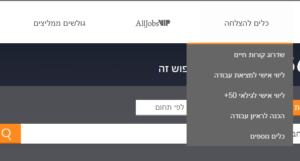BACKGROUND
The Land of Israel has been referred to under several names for centuries: the Land of Canaan, the Promised Land, the Holy Land and Palestine. However, the actual territory wasn’t clearly defined – and in many ways, it still isn’t – until the middle of the 20th century. In modern times, one of the first people to suggest the foundation of the State of Israel was an Austrian-Hungarian by the name of Theodor Herzl, also known as ‘Khozeh HaMedinah’ (the visionary of the state). He promoted the Zionist Organization and the move to Palestine (with the help of the Rothschilds). In fact, Rothschild bought up Palestine land as early as 1882. By returning to the Israeli state, the idea was to bring new technology and new knowhow to the Arab people. Instead, the newcomers were greeted with hostility. The Israel State was officially declared in 1948, just after the Second World War. Indeed, the WWII proved that the Jews needed their own country. Israel joined the UN in 1949 and saw rapid population growth. The territorial war is on-going to this day, costing the lives of many.
The capital is Jerusalem, but it has only partial recognition, which is why the embassies are located in Tel Aviv. The Northern city also has access to the sea and a number of tourist attractions. Even if the country covers a long stretch of land, 60% of it is made up of deserts, including the largest one, the Negev.
Officially, Israel left Gaza in 2005 but the terrorist group Hamas had control of Gaza, and they didn’t recognize Israel as a state. That’s why Israel has kept a very strict control over the boarders, and tensions continue to exist.
It would be wrong to assume Israel is defined solely by the territorial conflict. Thousands of people travel to Israel every year because it is seen as the “homeland” for many Jews. There are beautiful landscapes, inviting beaches and great food. Many innovations and impressive startups have been launched in Israel recently, and more a set to come in the future. It’s a perfect time to tap into the market and recruit bright young talent.
CURRENT STATE OF THE JOB MARKET
Since Israel was founded less than a century ago, the locals come from all over the world. For that reason, most of them speak Hebrew and another language. Over the years, Israel has become a great place to find bilingual workers and to set up multinational companies. Even today, new immigrants continue to flock to the homeland: 20% of children entering the first grade are from immigrant families and more than half of Israeli children grow up in a bilingual environment.
Among the most dominant bilingual combinations, we have Russian and Hebrew. “The largest cohort is Russian-speakers, numbering about 1.2 million out of an overall Israeli population of 8.7 million”, according to Israel21c. Furthermore, in a million households, Arabic, Yiddish or African languages are spoken. The large number of bilinguals makes Israel a great place for research on the topic and Israel is world renowned for its research in “Developmental Language Disorder (DLD)”. Studies show that being bilingual in English and Hebrew can lead to advantages for executive functions, but not being bilingual in Russian and Hebrew. In a country with such a diverse mix of locals, it’s easy to ensure diversity when recruiting.

The current unemployment is between 4 and 5% of the population, so that represents approximately 400 000 people out of the 8.5 million living in Israel.
RESTRICTIONS AND ENTITLEMENTS
Israel has strict laws when it comes to entering the country, living there and traveling to and from certain places. Nationals from these countries need approval before they can enter Israel: Afghanistan, Bahrain, Egypt, Indonesia, Iran, Iraq, Jordan, Kuwait, Lebanon, Libya, Malaysia, Mauritania, Morocco, North Korea, Oman, Pakistan, Qatar, Russia (only for official passport), Saudi Arabia, Somalia, Sudan, Syria, Tunisia, United Arab Emirates and Yemen. Lebanon, Syria, Saudi Arabia, Iraq, Yemen and Iran are considered enemy countries by Israeli Law. For that reason, citizens are required to have an Israeli ID card on them at all times. Foreign workers must keep identifications on them as well. They also need the appropriate visa. A working visa is valid for a specific field/trade and the procedure differs from one trade to another. Hiring construction workers, for example, must go through authorized employment agencies (LMC’s, “Licensed Manpower Companies”).
As a recruiter, there are some conditions that you are required to offer workers. Employees are entitled to 10 days of leave (for holidays) a year. The employer must also pay for transport and the termination time varies depending on how long someone has worked in the company. The average full time working hours are 42 hours and minimum wage is about 5300 ILS per month (1257.86 Euros or 1456.98 USD). For more information on salaries, you can check out the salary calculator and this article on different salaries for different ages from AllJobs, the leading Israeli job board. If you’re recruiting in the tech field, you can find more specific salary advice on the Ethosia website, the leading recruitment firm in the country.
CULTURAL ADVICE

Furthermore, the country is known for its humanitarian initiatives. If the recruiting company is involved in charities and humanitarian missions, it’s definitely worth mentioning. It’s one thing to belong in a group, but it’s quite rewarding to belong to a group, which does good for others.
When targeting candidates, job boards are great to advertise current job offers but the employer brand can also be featured on social media. In Israel, the top social network websites are Facebook, Instagram, Ok.ru, Whatsapp and VK. That doesn’t mean you should completely forget about Twitter, but visuals and Russian networks should be a priority.
Speaking of visuals, they really are everywhere in Israel. Most company pages and profiles include large images and videos to attract candidates. The job offers are usually brief but recruiters know that jobseekers will do additional research to find out about the company directly from the source.
However, in Israel, it’s just as important for candidates to know how to sell themselves with self-branding, as it is for recruiters to know how to market their company. Different sites offer services for jobseekers, which means it’s definitely worth paying for CV database access. Self-branding doesn’t mean revealing everything about your experience. In fact, candidates don’t necessarily include the names of past employers on their CVs, so checking their references is a bit difficult.

JOBBOARD FINDER’S TOP PICKS FOR ISRAEL
There are a number of job boards in Israel but, unfortunately, practically none of them have language options, so the sites are entirely in Hebrew. Luckily, thanks to Google Translate, most recruiters can get by even on the most challenging websites. Here are the top job boards in Israel! For more information on each one, simply check out their profile on the Jobboard Finder:
We hope you enjoyed our article on how to recruit in Israel. If you have any suggestions for our blog or any questions regarding recruitment and job searching, simply leave us a comment below.
Author: Ali Neill
As the job board tester and blog editor for the Jobboard Finder, Ali works on job boards from all around the world and keeps a close eye on the recruitment trends thanks to a number of sources, including the website’s social media pages.

























« How to Select the Right Job Board



I want to apply for israel
Thanks for your comment Amorine :) I have sent you an e-mail.
hello,
i am from Azerbaijan, can I apply for work ?
Hi Etibar, we cannot accept applications since we don’t have any job offers, but you can use the search engine to find job boards in your country and apply to those! (www.jobboardfinder.com/search)